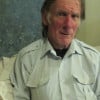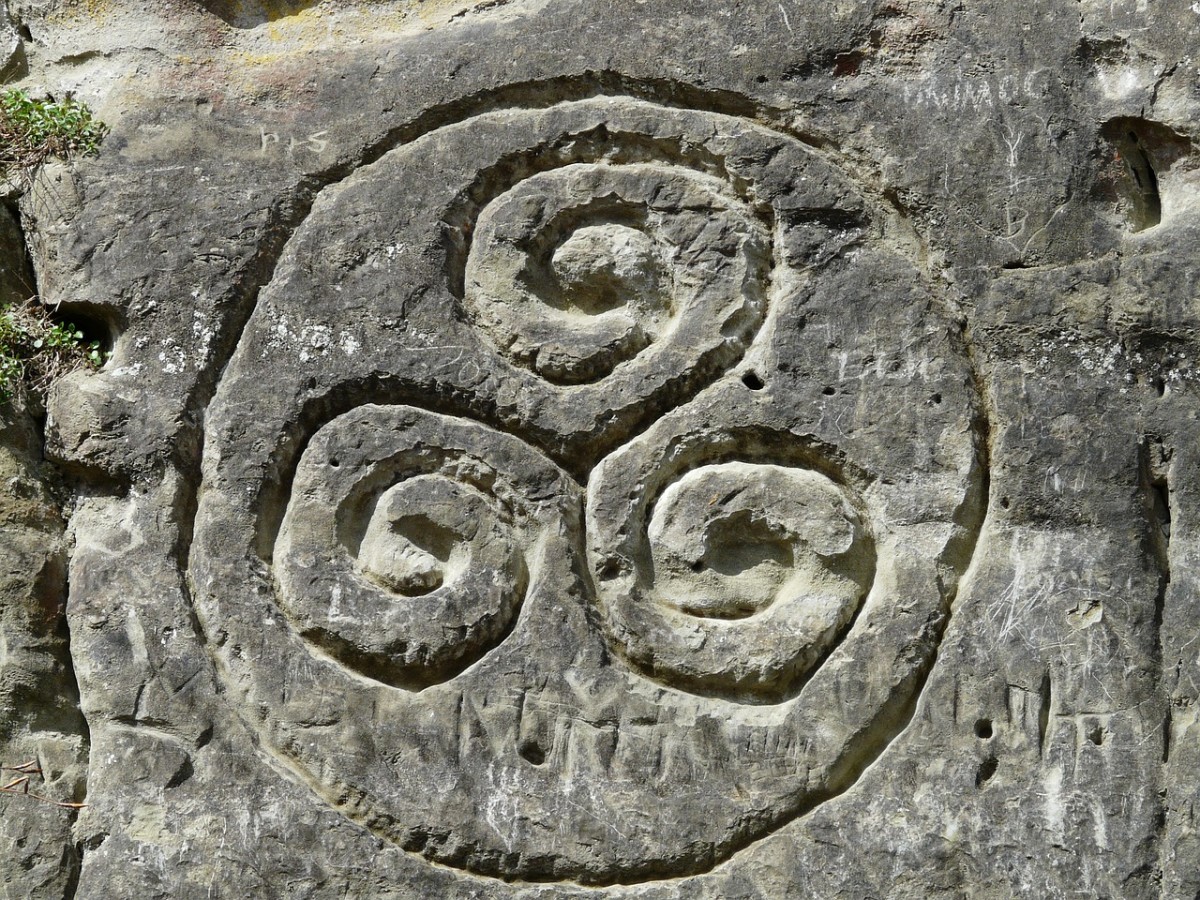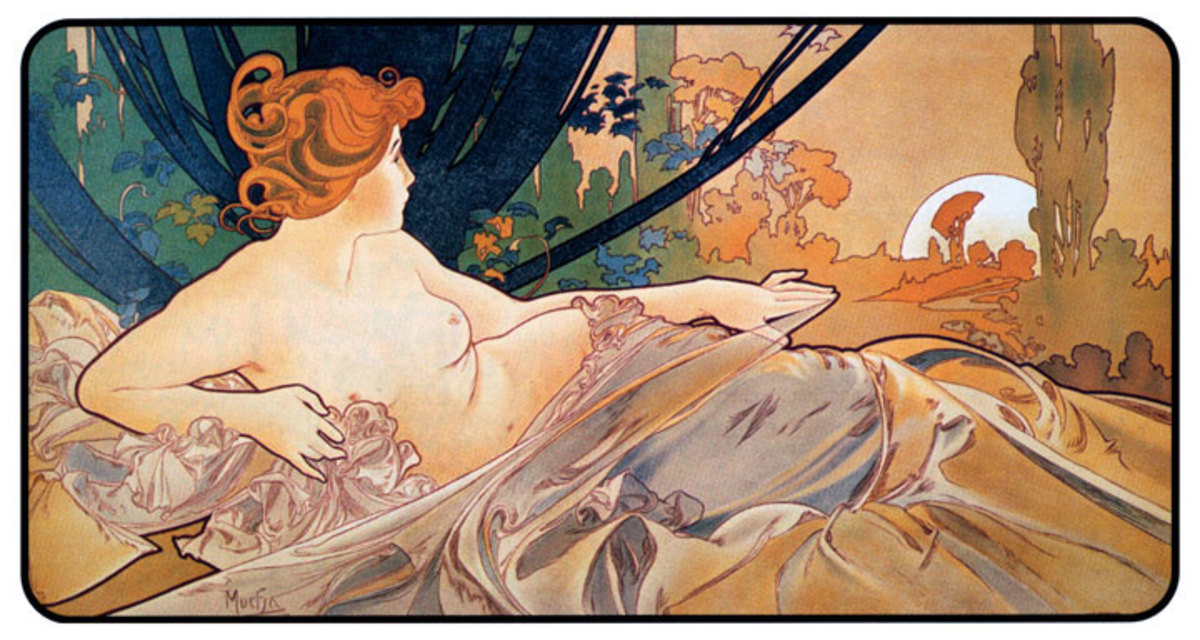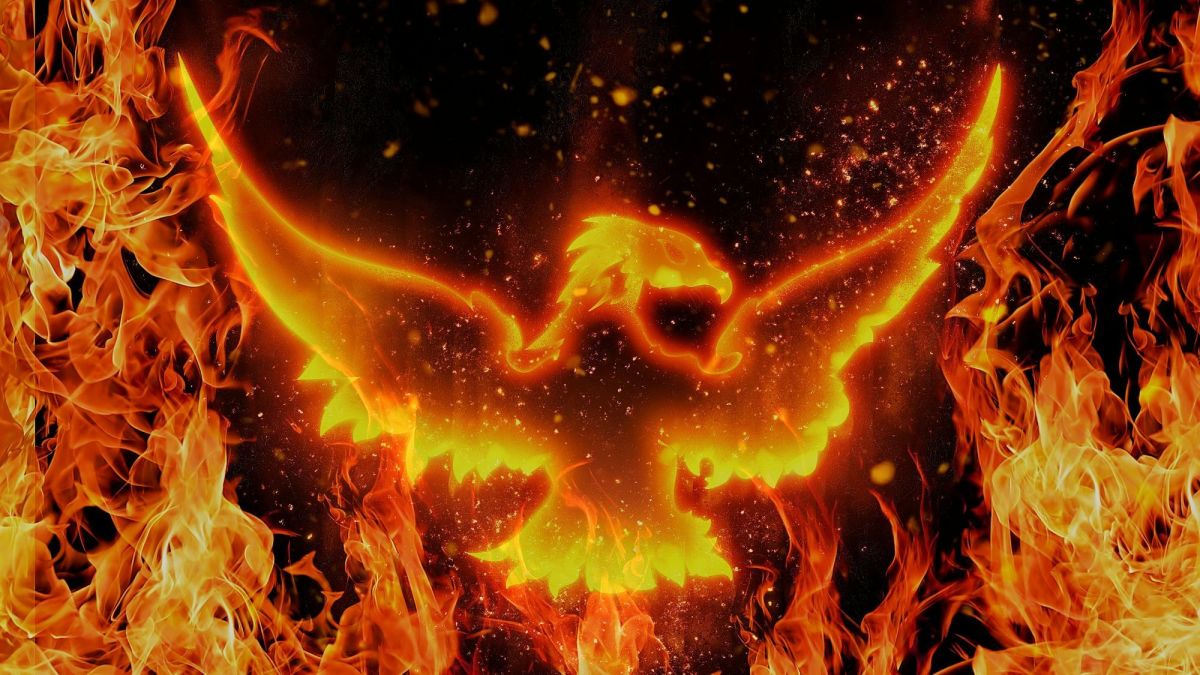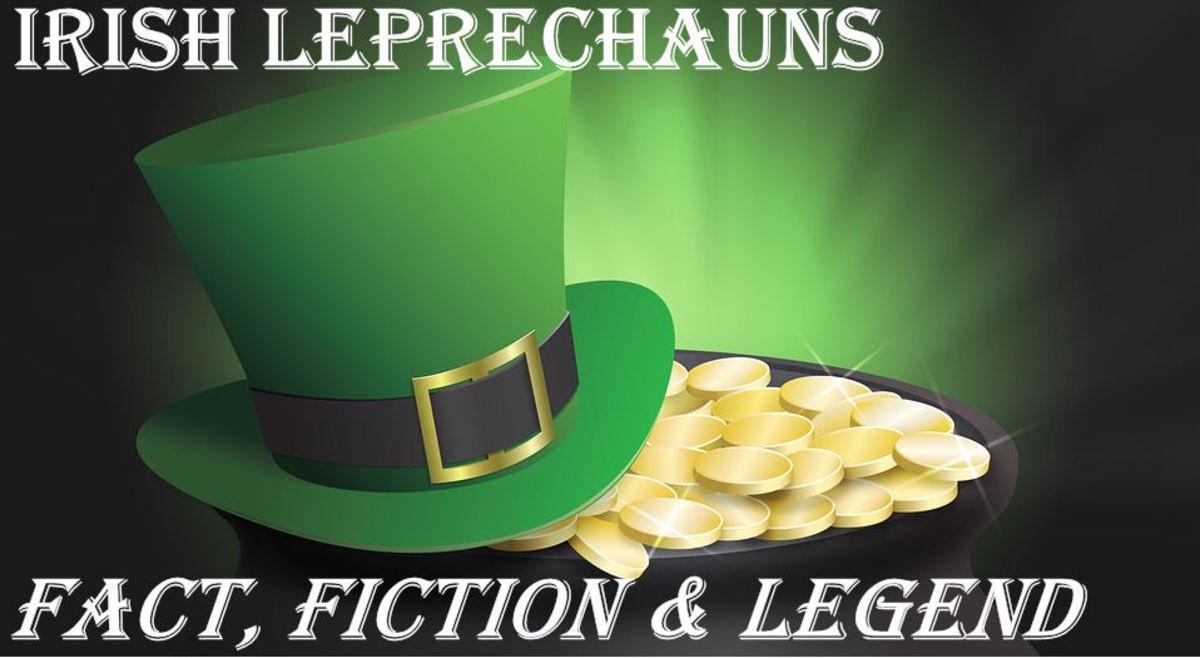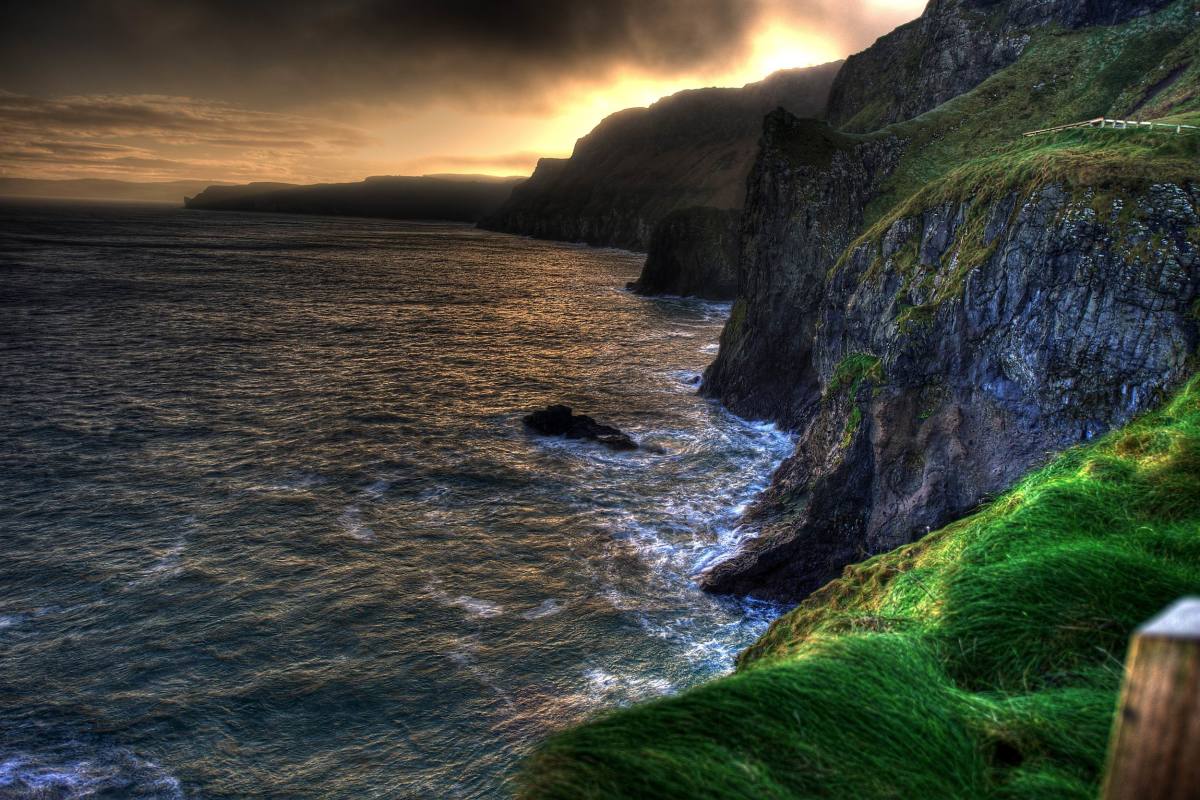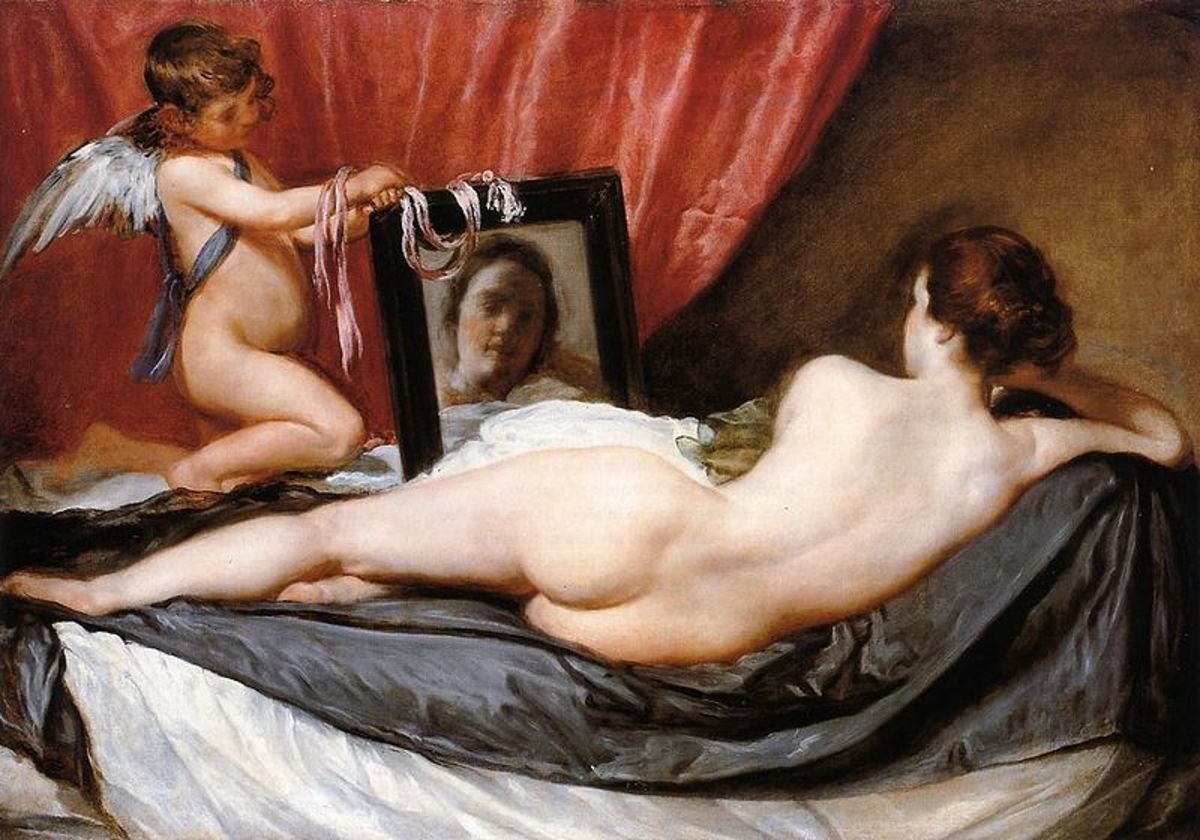Life on the Fringe - 11: A Colourful Pageant of Gaelic Gods, Goddesses and Heroic Legend
The water goddess Boann
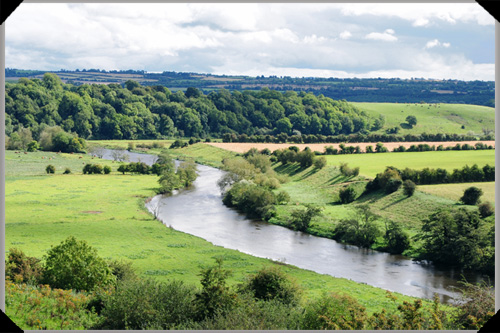
The Daghda fathered Oenghus on BOANN. She was at the time the devoted wife of Elcmar and the Daghda had tricked him into leaving his home on a - very long, roundabout - fool's errand whilst he bedded Boann, using another ruse, making her believe he was Elcmar. Of course her husband was far away at the time and by the time she realised she had been duped it was too late. She was with child. As it was the Daghda managed to make the nine months Elcmar was away seem like only a day. There was nothing of note where he had been told problems had arisen. In fact the people there were surprised to see him but they had problems of their own that needed looking into and so he was detained a little while longer. On arriving home again he was bemused to find an altogether new child being suckled by his wife's wet-nurse but said nothing, biding his time until he could learn the origins of this young newcomer. Meanwhile Boann had Oenghus raised by the Midhir, another of the gods of the Gaels whose home was in the sidh of Bri Leith, one of the underground kingdoms to which they had been driven by the sons of Mil Espaine. By the time Elcmar realised what had happened Oenghus was safe.
Another legend gives us a significantly different story. This was that Boann was Nechtan's wife and Elcmar her brother. She is thought to have been a water goddess who dwelt by lakes, rivers and streams. She gave her name to the River Boyne that meanders peacefully through the largely rural County Kildare in south-eastern Ireland - not far west of Dublin, if you fancy visiting the area - hire a car or go walking..
.
Legends of the Emerald Isle
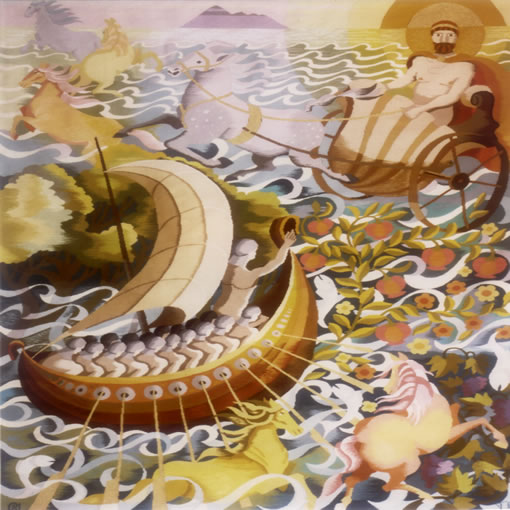
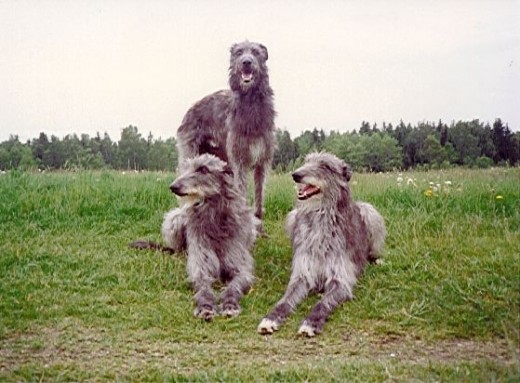
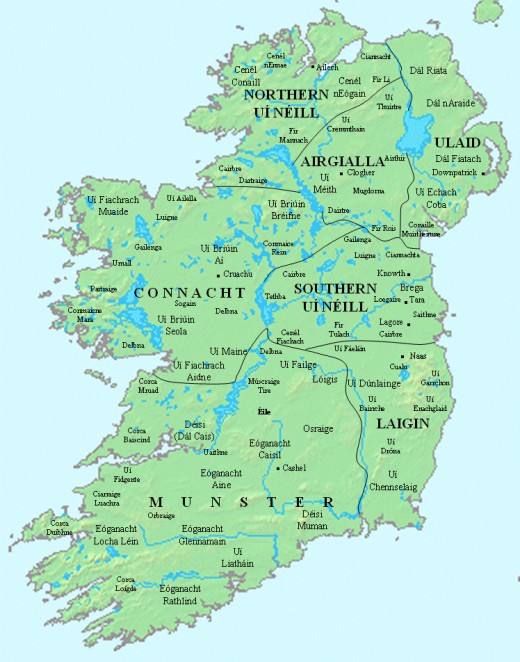
Bran and Bran - one an adventurer, the other a victim of envy
BRAN, son of Febal was lured away to the Otherworld by the dream of a beautiful woman he had never before set eyes on. He bade his father, mother and kinfolk farewell and set out over land and water to find her. He took with him his three foster-brothers and a band of twenty-seven warriors on his quest. Following a series of adventures when travelling overland, they came to a broad sea and took ship. Bran knew he should steer for the far shore by the dreams he had had. One telling has it that Bran and his company met Manannan mac Lir, the god of the sea on his chariot. As a favour to Bran the god changed the sea into a flowery plain whilst he and his followers crossed, and then turned it back again to a raging sea once Bran and his men were safe on the far shore (this was possibly the Inner Hebrides, the Irish Sea between Ireland and England/Wales/Scotland is 'lively' at the best of times - the Spanish Armada came to grief this way in the summer of 1588 after mis-navigating around the north of Scotland).They came to the Otherworld land known in Gaelic as 'Tir ma mBan', the land of the womenfolk.
Another story tells of one of the women there tossing a ball of string to Bran when his ship neared the shore. The string stuck to his hand and he grabbed hold of it, pulling arm over arm, enabling him and his ship to be hauled out of the sea. They came ashore on this magic isle to a warm welcome from the women. Whatever the nature of their arrival, Bran and his friends and followers stayed a while in the land of the women, savouring the comforts, the beauty of their hostesses, the greenery of the isle, and the otherworldly taste of the food they were given.
Nevertheless, despite the comfort they lived in and the never-aging beauty of their hostesses, some of the men became restive and approached Bran, telling him they were homesick. They missed their families and friends and wanted to go home to Erin. They persuaded Bran to set out, back to home shores. Yet another version tells that they were warned by the women against doing so because, although they felt they had only been there for a year or less, they had been there for many hundreds of years. The warning went on to tell them that having lived far beyond their normal lifespan they would be rendered to dust as soon as they set foot on their home shore. The warning would be ignored at their own cost, the woman added finally but to no avail.
Bran and his men chose not to heed the warning and set sail again for home. The first man to leap from the ship and run through the surf to the strand crumbled to a small pile of dust on the shore, and was swept away by the next incoming wave. Bran called to those standing on the shore watching, to tell them of his deeds and then the rest of the company sailed away again, never to be seen again in their homeland;
BRAN (2) One of the sons of Tuireann also bore this name, born to her when she had been turned into a wolfhound by her husband's envious mistress. Both Bran and his brother Sgeolang/Sceolang were born in this form and became the faithful hounds of Fionn mac Cumhaill (cf)
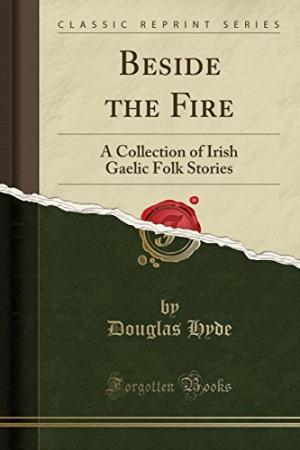
Douglas Hyde tells you of Gaelic heroes and legends. Seat yourself by the fire with a warming drink, maybe a round of scones, and take in a world that wasn't entirely make-believe, nor was it tangible. Bordering on the fantastic, sometimes tall stories make up this collection of legend from the Emerald Isle
Bres, king of the Tuatha de Danann
The name has been given to more than one man, which tends a little to confusion. The better known of the two is the Bres who took over the leadership of the Tuatha De Danann after Nuada lost an arm during fighting in the first battle of Magh Tuiredh, and had to stand down as king of the Tuatha de Danann.his kingship. It was a condition of kingship of the Tuatha that as long as the king remained 'whole' his kingship was assured. Losing one arm in the battle rendered him unfit. Bres was a descendant of the Fomorii (see part 14) on his father Elatha's side, and was of the Tuatha on his mother Eri's side - his mother having been an erstwhile mistress of Elatha.
In fulfilling his role in the kingship Bres proved to be a bullying tyrant, and was forced to stand down and let Nuada take over the kingship once more. Nuada had by this time a silver arm crafted for him by Dian Cecht (cf). Bres looked to others of the Tuatha for support but, realising his was a lost cause he defected to the Fomorii, an act which led to the second battle of Magh Tuiredh. He was taken in battle, captured after a long, hard struggle, but freed by the Tuatha as long as he advised them on crop growing (?) No more is known about Bres.
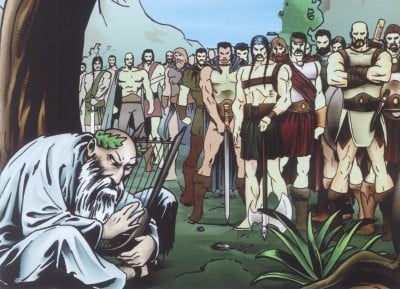
Bricriu and Brigid
BRICRIU was an Ulster champion famed for malice and a love of pulling pranks in the way of the Welsh Efnisien and Norse Loki. The story goes that he held a feast for the men of Ulster and Connacht. Competition was reputedly hard for the privilege of carving the meat at a feast such as this, as the honour normally went to the worthiest warrior in attendance. Few would be seen fitting to fulfil the role and those who qualified would face stiff, determined opposition.
To make trouble for them, Bricriu took three of the most notable warriors aside and talked them individually into claiming the privilege. The three warriors, Cuchulainn, Conall Cernach and Laoghaire Buadhnach were sent to Medb to have their claims assessed, and she favoured Cuchulainn. The others were livid and refuted the decision, so all three were then sent on to seek counsel from Cu Roi mac Dairi, king of Munster, who also proved to be in favour of Cuchulainn carving the roast.
Bricriu the mischief-maker was later asked to judge the competition called for by Medb, the fight between the giant bulls Donn Cuailgne and Finnbhenach, but he was trampled to death by the fighting bulls before Finnbhenach was defeated.
BRIGID or BRIGIT, was reputedly one of the goddesses with either a triple or singular identity due to the duality of her nature. Her name meant 'the worshipped one' and she was linked with healing, fertility, crafts, poetry and learning. In one legend she was a daughter of of the Daghda and possibly wife of Bres (not the king of the Tuatha De Danann).
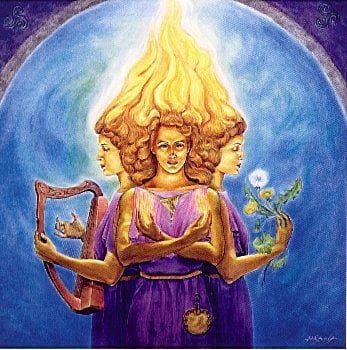
Midhir and Etain
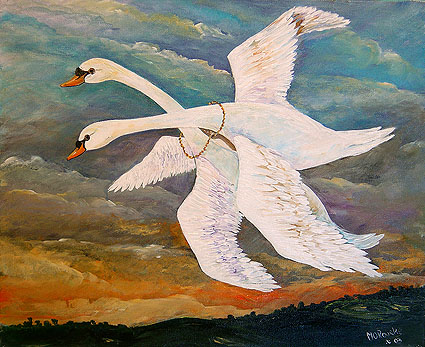
MIDHIR dwelt in the sidh of Bri Leith, one of a number of underworld kingdoms of the gods after being driven from Ireland by Mil Espaine's sons. The foremost tale of Midhir centres on him courting ETAIN. Married as he was to Fuamnach, he appealed for help from Oenghus who brought Etain to his home as his new bride.
Fuamnach was predictably incensed by her husband's wilful pursuit of another woman and sought revenge. She turned Etain first into a pool of water, that was then transformed into a worm, and in turn the worm became a fantastic fly. Fuamnach then raised a great gust of wind that took Etain off, to land on a rock by the sea. Seven years passed before Oenghus found her and set about getting her back to Midhir. Fuamnach had other ideas about that and summoned another gust of wind that blew the fly into a cup of wine.
Both wine and fly were swallowed by a pregnant woman after and presto! Etain was reborn. She was in time wedded to Eochaidh Airemh, the high king of Ireland. The legend becomes involved and variations on the theme abound. The most straightforward version has Midhir challenge Eochaidh to a game of chess for an undisclosed prize. Midhir won his game and claimed his prize, a kiss from Etain. Eochaidh went back on his promise to grant Midhir his choice of prize. He would not let Midhir anywhere near where his queen dwelt at Tara.
Midhir gained access to her and turned himself and Eta into swans, flying upward and out through the smoke hole in the palace roof. Eochaidh chased after them, calling on Midhir to give him back his wife. Following a complex sequence of chase and halt Midhir conjured up two score and ten women who looked just like Etain. Eochaidh was to take his choice, carefully, but he chose his own daughter by mistake (another one of Etain's lookalikes).
Only after the birth of a son, Conaire Mor did he realise the unfortunate choice had been his daughter and knew he had committed the unspeakable act. He had brought shame on his family through incest
© 2013 Alan R Lancaster
